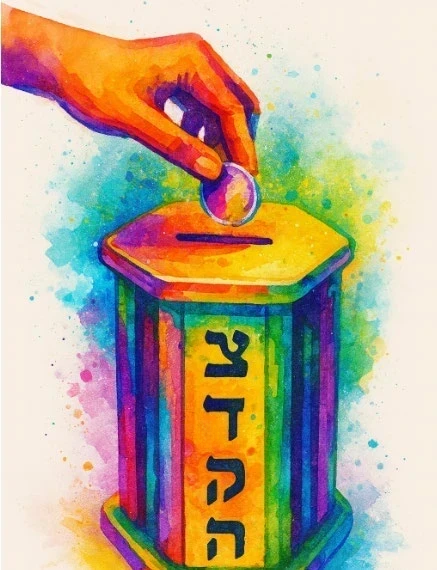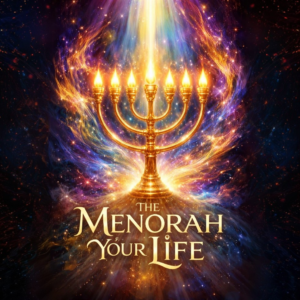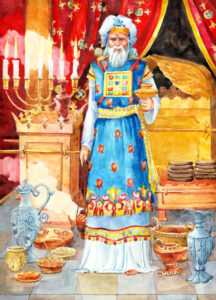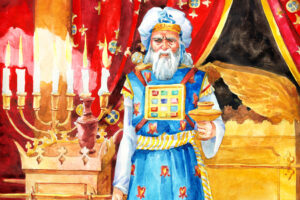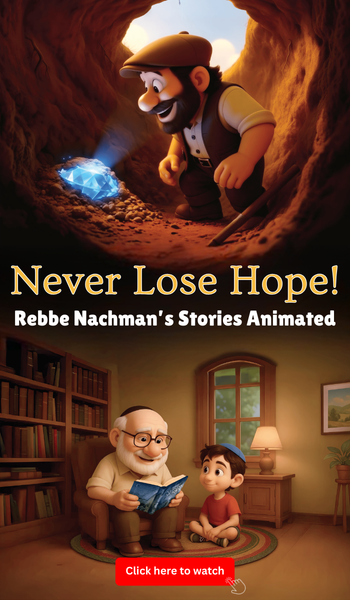Proper Use of Tzedakah
FROM THE UPCOMING ‘REBBE NACHMAN’S SOUL’, ADAPTED FROM HIS AUDIO SHIUR ON SICHOS HARAN 24
GIVING MONEY TO THE TZADDIK EMES
In this week’s parsha, Ki Savo, we read about the privilege of bringing bikkurim and ma’aser—gifts dedicated to HaShem and His servants. So too, Rebbe Nachman reveals the rare and immeasurable merit of giving money to the tzaddik emes, a gift that brings favor before both HaShem and the tzaddik.
Rebbe Nachman says that aside from becoming merged with the tzaddik emes, there is a rare, priceless privilege of giving money to the tzaddik emes. This privilege is so precious it’s immeasurable. We know that money itself can buy a lot of things, but it cannot really buy spirituality. With tzedakah, a person can do mitzvos, but he can’t buy his way into Gan Eden. There is no place in Gan Eden that can be bought for a certain price. If you cannot bribe an honest judge, you surely cannot bribe a tzaddik. So, how can you give money to a tzaddik and thereby have him accept you as one of his own?
Rebbe Nachman says that to give money to the tzaddik emes is so great an accomplishment, the person deserves not only the thanks of the tzaddik emes but also a very special commendation from HaShem. This is because he is, kivyachol, doing a favor to both HaShem and the tzaddik emes.
A PARABLE OF DESIRE
Rebbe Nachman explains this with a parable. There was once a king and a prince. After being estranged for quite some time, they were both suddenly struck with a tremendous longing to see one another. They each began to travel toward the other as fast as they could. The closer they came, the stronger their yearning became, until they felt that they might actually pass out or even pass away from that strong desire. Then they both realized: What is the sense of taking such a risk that could possibly cause death? This desire is too overwhelming and dangerous. It’s best to forget about it. The king said, “I have other business to take care of,” and the prince made a similar declaration. Along came a person with a flying chariot. He picked up the prince, and flew at a tremendous speed to bring him close to his father. This happened so quickly that the prince was shocked to suddenly find himself in the arms of his loving father. Imagine the reward due to this person from the king, and the thanks from his son, the prince, for bringing them together after they thought it was impossible.
Rebbe Nachman says that the tzaddik too, has this yearning to be close to HaShem, and he keeps moving closer and closer. However, when he has such an overwhelming desire to become part of the spiritual, there is always the danger of his soul leaving him.
DANGER WITHIN A PROPER KERIAS SHEMA
Let’s look at the mitzvah of Kerias Shema. In truth, a person saying the Shema properly is supposed to feel that he’s about to die for the sake of his faith in HaShem. When he says, “Ve’ahavta es HaShem Elohekha bekhol levavkha u’vekhol nafshekha,” you shall love HaShem with your whole heart and with your whole soul, with your life, it means, “even though my life is taken, I still have this implicit faith in HaShem.” The words should be said with such fervor that you feel as though you’re actually about to die for your faith.
Rebbe Nachman says that there is always the danger that a person’s soul might leave him, because he might feel the actual experience of death and accept it gladly (Likutey Moharan I, 193). Of course, it is not worth losing his life when he could continue it and serve HaShem. This is what the tzaddik feels at the time of yearning. There are obstacles between himself and HaShem, but his desire is so overpowering, he feels in danger of losing his life. So, he, thinks: “Why spend time with desire alone? Let me concentrate on learning Torah. I’ll continue davening, putting on tefillin and doing other mitzvos.” HaShem, too, kivyachol, has this desire for the tzaddik emes to be close to Him. HaShem is all-powerful, but He does not use His power to counteract the privilege given to human beings: the right of free choice. HaShem’s desire is: “I want the tzaddik emes close to Me, too. But in a sense, it’s so difficult, we’ll have to let it go for a while. I have a whole world to conduct and take care of. In the realm of Heaven there are countless angels—why only the tzaddik emes?” Kivyachol, of course. This is a very delicate topic; it’s difficult to speak about it in the physical sense.
MONEY REMOVES THE BARRIERS
Along comes this person and gives the tzaddik emes a large amount of money. This money removes any possible physical barriers that he has: problems with his family, financial problems, health problems that require money to solve. Suddenly he’s free to soar upwards and come close to HaShem quickly. Imagine what kind of reward the person who has done this mitzvah receives from HaShem, by bringing His most desirable son close to Him. The example given, the nimshal, cannot really be explained in the physical sense. We can’t explain what is meant by HaShem having a strong desire, or that the tzaddik has this yearning, which cannot become materialized until money is given. Though we do not understand this in the full sense, we can understand Rebbe Nachman’s words about the importance of giving money to the tzaddik emes – that it does, somehow, bring the tzaddik emes closer to HaShem. Imagine what a person is accomplishing when he can do something for the tzaddik emes and, at the same time, for HaShem. So, in this case, we know that there are mitzvos that are far beyond our conception. Our duty is to accept them with faith. Ashrei to those who are zokheh to give money to the tzaddik emes.
IMPROPER DISTRIBUTION OF TZEDAKAH
We can now understand the words of Rav Kokhav Lev, Rav Avraham Sternhartz. He said that the mitzvah of tzedakah is one of the most important mitzvos in the Torah. And yet it is so diversified that a person can sometimes squander his money wrongly, because if you give the wrong kind of tzedakah, you don’t gain, but lose. The Gemara says there is a curse upon certain wealthy people that even when they intend to give tzedakah, their wealth goes to the wrong place (Bava Kama 16b; see Likutey Moharan I, 264). A person who merits finding the right place to give tzedakah—to the tzaddik emes—is able to accomplish much more with a little bit of tzedakah than those who give huge amounts.
Rav Kokhav Lev said that one who understands and values the concept of giving tzedakah to the tzaddik emes must know how to invest his tzedakah. Ashrei to the person who invests his tzedakah money for the sake of the tzaddik emes. Giving to the yeshivah of the tzaddik emes, the sefarim of the tzaddik emes, the Torah of the tzaddik emes is infinitely more valuable than any other type of tzedakah out there. This is what is revealed to us and this is what we should be zokheh to fulfill.
If we are zokheh to fulfill these words of advice of Rebbe Nachman, then we will surely be deserving of all the associated blessings mentioned in the Torah.
- 0 comment

